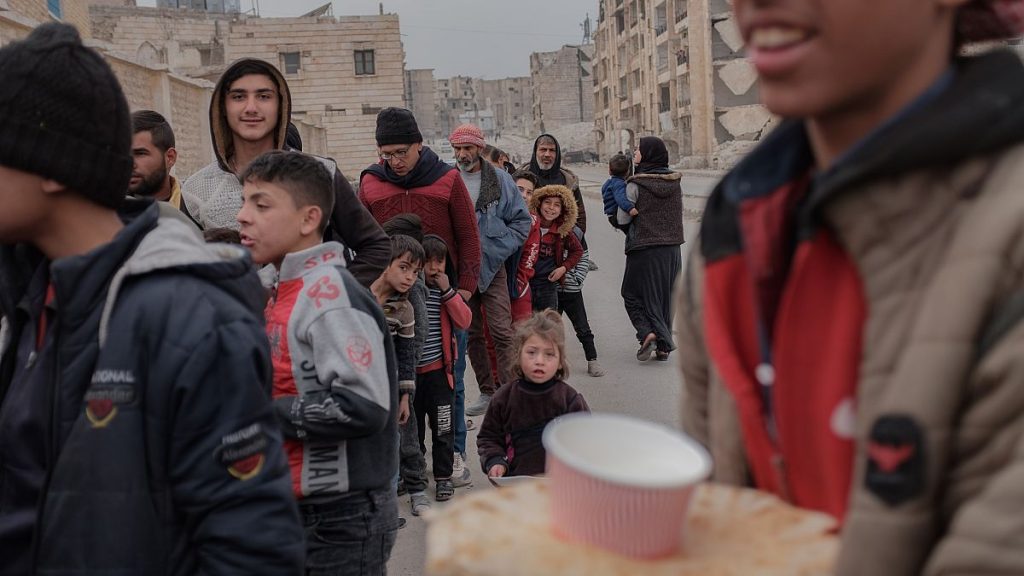The echoes of war reverberate through Aleppo’s shattered streets, a poignant reminder of the devastating 13-year conflict that ravaged Syria. Ahmed, standing amidst the ruins, recalls the harrowing siege of 2016, a time of desperation and fear as evacuations stalled, leaving civilians trapped without food or water, vulnerable to the relentless bombardment by Assad’s forces, backed by Russia and Iran. The siege of Aleppo epitomized the brutal nature of the conflict, leaving an indelible mark on the city’s landscape and its people’s psyche.
The Syrian civil war, a complex tapestry of internal strife and international proxy wars, claimed hundreds of thousands of lives, leaving millions displaced and creating a humanitarian crisis of immense proportions. Aleppo, a once-thriving commercial and cultural hub, became a battleground, its hospitals and infrastructure systematically targeted. The UN Human Rights Council condemned the deliberate targeting of civilian infrastructure, highlighting the egregious violations of international law committed by all parties involved. The rebels, too, contributed to the suffering, their attacks on western Aleppo adding to the civilian death toll.
The fall of Aleppo in 2016 marked a turning point in the war, solidifying Assad’s control. The city remained under his rule until the dramatic events of November 2024, when a swift military operation led by the militant group Hayal Tahrir Al-Sham (HTS), in conjunction with the Turkey-backed Free Syrian Army (FSA), swept through Aleppo and onto Damascus. This unexpected turn of events forced Assad to flee to Russia, ending decades of dynastic rule and ushering in a new era for Syria.
Ahmed, returning to Aleppo after years of displacement, confronts the stark reality of destruction. The remnants of war are everywhere – unexploded ordnance, damaged buildings, and ubiquitous rubble. Despite the scars, a glimmer of hope shines through as children queue for food distribution at a former frontline, a symbol of resilience and the promise of a new beginning. Ahmed expresses his yearning for “a Syria for Syrian people,” a sentiment shared by many as they navigate the uncertain path towards recovery.
Omar, a returning refugee, reflects on the psychological toll of the war and the hardships faced during his exile in Lebanon. Driven by a deep connection to his homeland, he returned despite the challenges, encapsulating the enduring bond between Syrians and their country. As the post-Assad era begins, new conflicts emerge, underscoring the fragility of peace. Clashes between the FSA and Kurdish forces east of the Euphrates River have damaged the Tishreen Dam, disrupting water supplies for millions in Aleppo and threatening to flood surrounding villages.
Amidst the ongoing struggles, the daily hardships of survival persist. Sima, a young engineering student, laments the lack of basic necessities – water, electricity, and internet access. Her education interrupted by the war, she now faces bleak employment prospects despite her skills. The reopening of schools and the resumption of religious services offer some semblance of normalcy, but the deep-seated anxieties and uncertainties remain. Haroutioun Simonian, coordinating food distribution at a church in Aleppo, captures the prevailing sentiment: they are “still living in a survival mode.”
The fall of Assad has ignited celebrations, symbolized by the raising of the new Syrian flag over the ancient Aleppo Citadel. However, beneath the surface of jubilation lie immense challenges. Widespread poverty, internal displacement, and the complex dynamics of the new political landscape paint a daunting picture. The future of Syria hinges on several critical factors: the relationship with the Kurdish militia controlling the northeast, the role of HTS in forming an inclusive government and establishing a new constitution, the ongoing Israeli-Palestinian conflict, and the massive task of rebuilding the country’s devastated infrastructure and institutions. Ahmed acknowledges the enormity of the challenge, emphasizing the need for collective effort: “We need everyone to rebuild Syria.”














